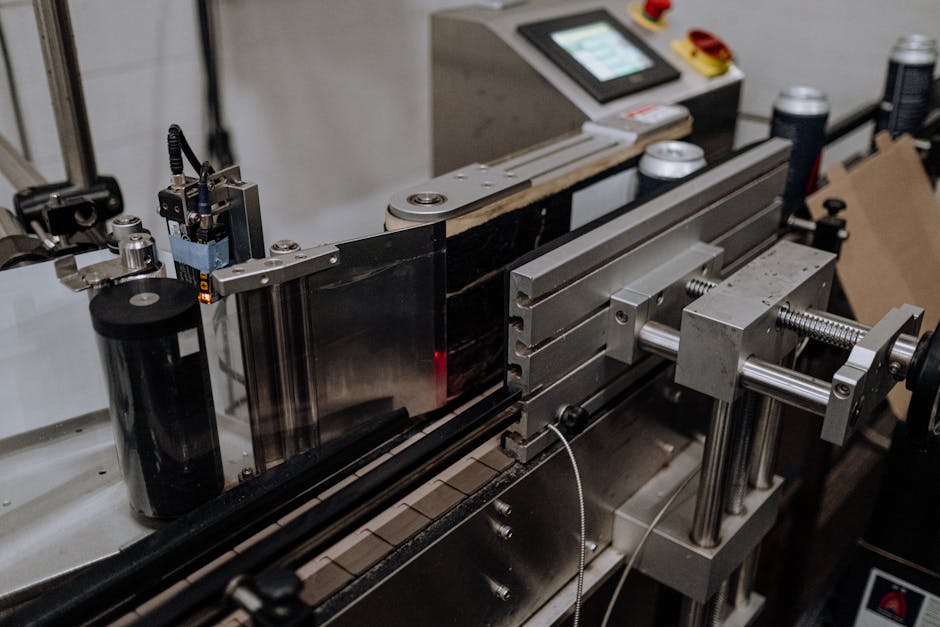In the fast-paced world of manufacturing, embracing industrial automation has become essential for companies looking to stay competitive. From streamlining operations to maximizing efficiency, the integration of automation technologies is revolutionizing the industry. Join us as we explore the evolution of industrial automation, the role of robotics in manufacturing processes, the impact of smart manufacturing, and the significance of artificial intelligence in driving efficiency.
Understanding the Evolution of Industrial Automation
The evolution of industrial automation has been marked by significant milestones that have transformed the manufacturing landscape. From the introduction of mechanization during the Industrial Revolution to the development of computer numerical control (CNC) machines, the journey towards automation has been a continual process of innovation and improvement.
Advancements in sensors, actuators, and control systems have paved the way for automated processes that can handle complex tasks with precision and speed. Today, industries rely on automation for tasks ranging from assembly and packaging to quality control and material handling. The evolution of industrial automation continues to drive efficiency and productivity across various sectors.
Robotics plays a vital role in the evolution of industrial automation, enabling companies to automate repetitive tasks and streamline production processes. Collaborative robots, or cobots, are increasingly being integrated into manufacturing operations, working alongside human workers to enhance efficiency and safety in the workplace.
As we look to the future, the evolution of industrial automation is set to bring about even more advanced technologies, such as autonomous systems and machine learning algorithms. By understanding the history and trends in automation, companies can better prepare for the next wave of technological advancements in manufacturing.
Implementing Robotics for Streamlined Operations
Robotics is revolutionizing manufacturing operations by introducing industrial automation solutions that optimize production processes and improve overall efficiency. Automated robotic arms are now widely used in factories to perform tasks that require speed, precision, and repeatability.
The integration of robotic systems has enabled companies to achieve a higher level of consistency in their manufacturing processes, leading to reduced errors and improved product quality. By leveraging robotics, manufacturers can enhance their operational efficiency and meet the growing demands of the market.
Collaborative robots have emerged as a game-changer in the realm of industrial automation, allowing human workers and robots to work together seamlessly. These cobots can perform tasks that require human dexterity and flexibility, while also ensuring safety and productivity on the factory floor.
With advancements in artificial intelligence and machine learning, robots are becoming smarter and more adaptable, capable of learning from their environments and making autonomous decisions. The implementation of robotics is transforming traditional manufacturing processes, setting the stage for a new era of efficiency and innovation.
Maximizing Efficiency Through Smart Manufacturing Processes
Smart manufacturing processes leverage technologies like the Internet of Things (IoT), big data analytics, and cloud computing to optimize production, reduce downtime, and enhance overall efficiency. By connecting machines, devices, and systems in a unified network, companies can monitor and control their operations in real time.
The predictive maintenance capabilities of smart manufacturing allow companies to anticipate equipment failures and proactively address issues before they cause disruptions. This proactive approach to maintenance not only minimizes downtime but also extends the lifespan of machinery, leading to cost savings and improved reliability.
Data-driven insights from smart manufacturing processes empower companies to make informed decisions, optimize performance, and identify areas for improvement. By harnessing the power of real-time data analytics, manufacturers can streamline their operations, increase productivity, and drive continuous innovation in their production workflows.
The integration of smart technologies not only enhances operational efficiency but also enables agile and adaptive manufacturing processes. By embracing smart manufacturing, companies can respond to market dynamics, customer demands, and supply chain disruptions with agility and resilience, ensuring long-term competitiveness in the industry.
The Role of Artificial Intelligence in Industrial Automation
Artificial intelligence (AI) is at the forefront of industrial automation, empowering machines and systems to perform tasks that traditionally required human intelligence. From predictive maintenance and quality control to production planning and supply chain management, AI technologies are revolutionizing the manufacturing landscape.
Machine learning algorithms enable AI systems to analyze vast amounts of data, identify patterns, and make data-driven decisions in real time. This predictive and prescriptive analytics capability helps manufacturers optimize their processes, improve product quality, and drive operational excellence across their facilities.
AI-powered robots and autonomous systems are transforming the factory of the future, where machines can communicate, collaborate, and adapt to changing production requirements autonomously. The self-learning capabilities of AI systems enable continuous improvement and adaptation, driving efficiency and innovation in manufacturing operations.
By embracing AI in industrial automation, companies can unlock new levels of productivity, flexibility, and competitiveness in the global market. The convergence of artificial intelligence, robotics, and smart manufacturing is reshaping the industry, paving the way for a future where innovation and efficiency go hand in hand.
As we dive deeper into the realms of artificial intelligence and automation, it becomes evident that the integration of these technologies holds the key to unlocking a new era of manufacturing excellence. With AI as the driving force, industries can optimize their processes, adapt to changing market dynamics, and lead the way towards a more efficient and sustainable future.
Embracing a Tech-Driven Future
As we conclude our journey through the realm of industrial automation, it’s clear that the future of manufacturing lies in embracing innovation and technology. By harnessing the power of automation, companies can optimize their processes, increase productivity, and achieve new levels of efficiency. With constant advancements in robotics, smart manufacturing, and artificial intelligence, the possibilities for enhancing manufacturing efficiency are endless.


